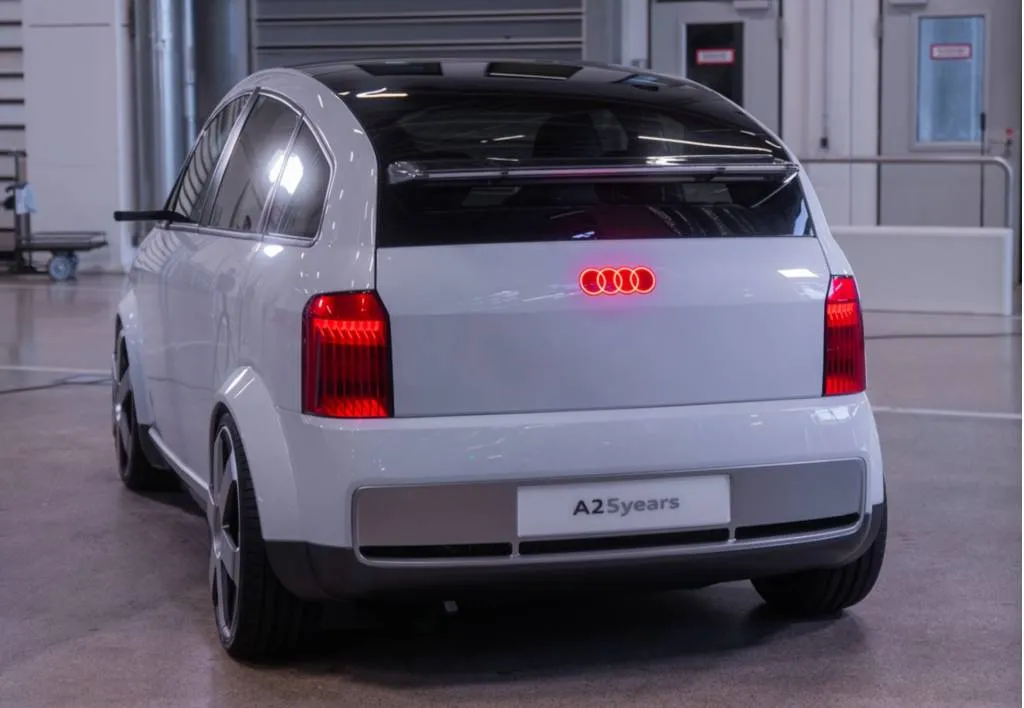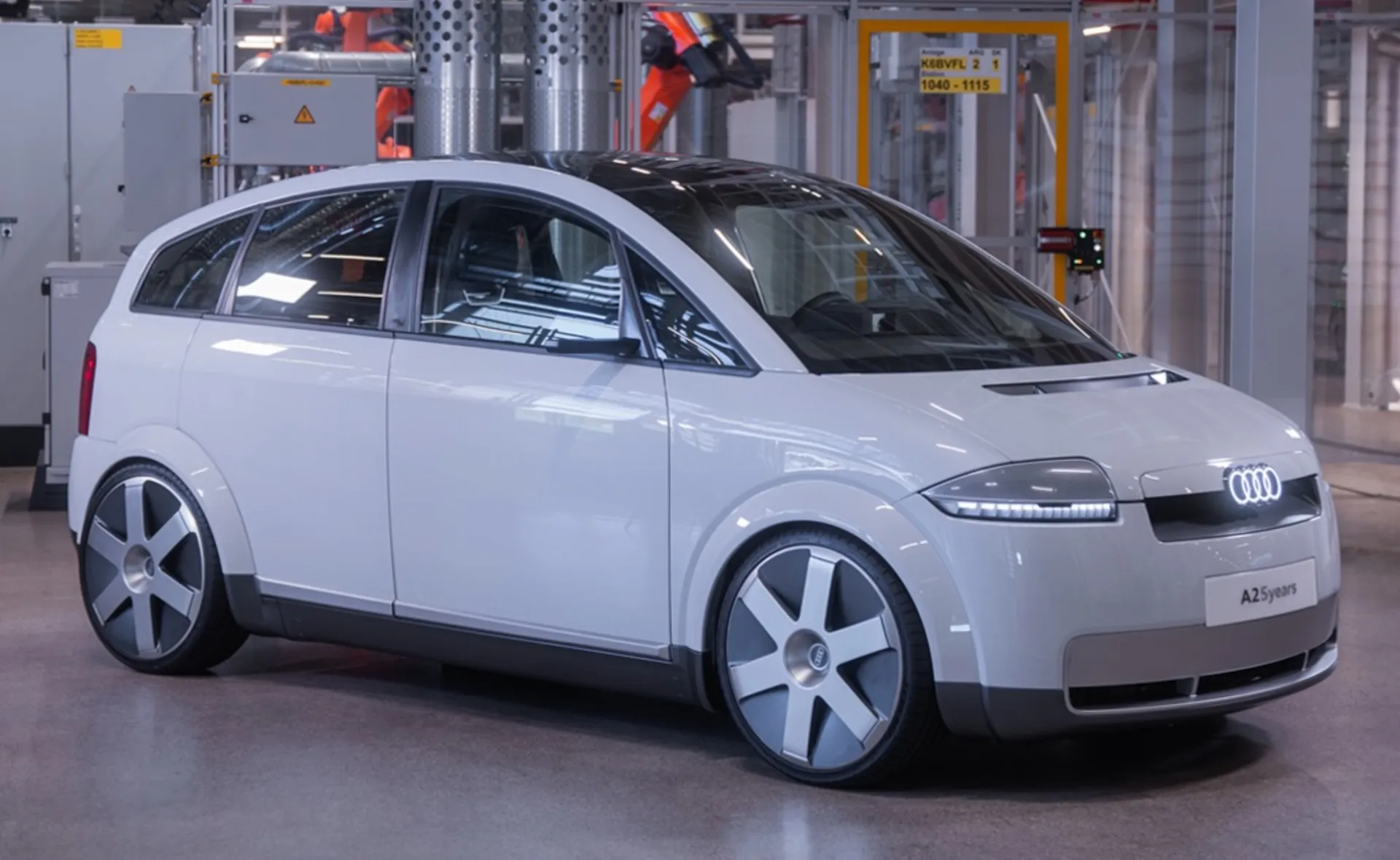Audi commemorated the 25th anniversary of its cult-classic A2 hatchback by converting one into an EV.
The Audi A2 E-Tron is a one-off project undertaken by apprentices. It’s not the first such project; Audi apprentices previously converted an NSU Prinz 4 from one of the automaker’s predecessor brands into a speedy EV concept to mark 150 years of manufacturing at the site of Audi’s Neckarsulm, Germany plant.
Audi A2 E-Tron concept
The hatchback is powered by a single electric motor from an Audi Q8 E-Tron, tuned for 197 hp and 261 pound-feet of torque. A 25.9-kwh battery pack from an Audi Q7 plug-in hybrid (a model not sold in the U.S.) was installed under the cargo floor and provides an estimated 129 miles of range (likely based on the European WLTP testing cycle). Audi claims there is room for a second pack, which would boost range to an estimated 248 miles.
The A2 also received exterior modifications like smooth wheels, deleted door handles, and illuminated front and rear badges similar to the Audi Q6 E-Tron and A6 E-Tron. Those two new EVs share the Premium Platform Electric (PPE) that’s key to Audi’s strategy to focus primarily on upmarket models—the opposite direction of vehicles like the A2.
Entering production in November 1999, the Audi A2 was a forward-thinking subcompact that emphasized efficiency with aluminum bodywork, frugal gasoline and diesel engines, and a distinctive shape that lent a low drag coefficient of between 0.25 and 0.29.

Audi A2 E-Tron concept
However, low gas prices around the turn of the century meant the A2 wasn’t as popular when new as it might be today. Never sold in the U.S., it was also more expensive than conventional small cars in Europe. So while the A2 maintains a loyal fanbase today, it sold poorly when new and was not replaced after production ended in 2005. The less-radical A1 became Audi’s entry-level model in Europe.
Audi was developing a smaller, fully electric A2 city car a decade ago, but it canned the project. The Audi Q4 E-Tron remains the automaker’s smallest EV for the U.S., sharing the Volkswagen Group MEB platform with the VW ID.4 and ID.Buzz, among other models.
